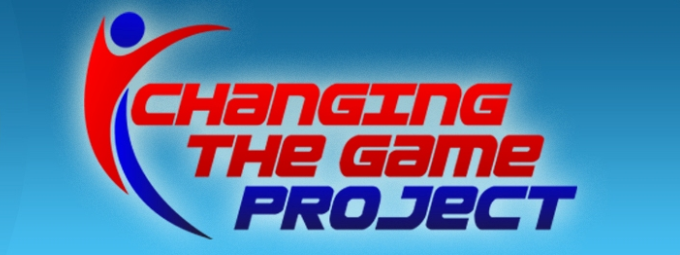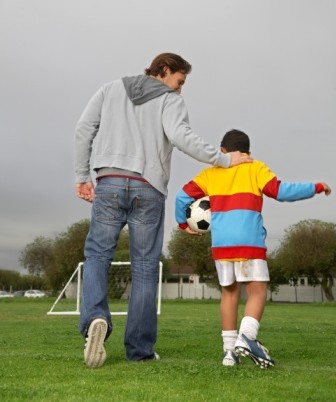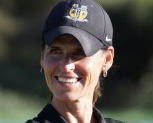Soccer News: Changing The Game of Youth Soccer
As you walk around and observe any youth sports sideline, unfortunately you see a lot of parents and coaches modeling poor behavior. Many adults, fired up, screaming at the ref, getting red in the face over kids playing a sport. What is youth sports’ coming to?
Soccer professional and turned author, John O’Sullivan, founder of Changing the Game Project, came to the realization that something must be done to shift the paradigm in youth sports. He has recently written two books, “Is it Wise to Specialize: What Every Parent Needs to Know About Early Sport Specialization and Its Effect Upon Your Childs Athletic Performance” and “Changing the Game: A Parents Guide to Raising Happy High-Performing Athletes And Giving Youth Sports Back to Our Kids.” In order to do his part to help shift the youth sports culture back to where is once was, when the game belonged to the kids.
 SoccerToday spoke to O’Sullivan, about his soccer background and more in depth look from his books.
SoccerToday spoke to O’Sullivan, about his soccer background and more in depth look from his books.
Carrie Taylor: Please give us a brief synopsis of your soccer background.
John O’Sullivan: I grew up in NY, played a ton of sports, but really fell in love with soccer. I got to play with some pretty incredible players as a kid, as NY was quite the hotbed. I think 7 kids in my league in HS went on to play MLS, and my teammate Chris Armas on to the US national team. I played in college at Fordham University, and then a short stint in the USL for the Wilmington Hammerheads before I got the calling to go into coaching. I started at a high school in NC, then from 1999-2003 became an assistant coach at the University of Vermont. When I met my wife, we moved to MI where I became a club DOC, and then to Bend Oregon where I ran Oregon Rush for 6 years. I also ran the Central Oregon Regional Training Center for the Portland Timbers until 2013, when I stopped full time coaching to concentrate on the Changing the Game Project.
Carrie Taylor: What prompted you to write the book, Changing the Game?
John O’Sullivan: I was standing on the sideline of my then 6 year old daughters’ game, and watching a perfect game. There was lots of giggling, a huge mass of players moving up and down the field, many mistakes and errors, but tons of enjoyment. The parents and coaches were positive, no one cared much for the result, it was great.
Next door was a U10 boys “competitive game.” The only ones competing harder, though, were the parents and coaches. A kid made a bad pass, the other team scored, and his coach screamed at him and yanked him out of the game, the parents yelled at him for not clearing the ball, etc. As he walked off, I though, “this is nuts.” A 10 year old made a mistake, and he gets treated like that. So I wanted to find a parent education program that helped people understand that just because you spend more money and time as your kids get older, there is still a learning curve, we still need to be patient, and we certainly need to keep it fun.
I didn’t find anything I liked, so I decided to write a book! Changing the Game was born.
Carrie Taylor: What is the biggest thing that has changed in youth sports since you played?
John O’Sullivan: When I was a kid it was children competing against children. Today I see a lot of adults competing against other adults through their children. Youth sports does not belong to kids anymore. The infringement on their childhood is off the charts.
The lack of free play, early sport specialization, and overemphasis on winning at younger ages goes against the advice of every physician, psychologist, sport scientist, and high level coach I have ever met. I figured someone had to bring these issues to the forefront of the discussion. And given the response to my blog at www.ChangingTheGameProject.com, it is hitting a nerve.
Carrie Taylor: In your book you mentioned “matching your actions with your vision”. Can you explain that statement?
John O’Sullivan: Most people do not have any idea why they sign their kids up in sports, and what they want to get out of it. All the parents I know want their kids to be hard working, respectful, honest, etc., but then they sign their children up to play with teams and organizations that cut corners, cheat, teach dishonesty and lack of respect, etc. They think that this does not bleed over into the other aspects of their child’s life, but it does. Kids model what they see, not what they hear, so putting your child with a win at all costs, serve my own ego coach tells your kids that that is the path to success. If that is not your ultimate vision of what you want your child to be like as an adult, then you need to think long and hard about the adults you surround him or her with.
Carrie Taylor: You mention having fun and learning as reasons kids play youth sports, do you see much of that mindset today? How do we change the attitudes of the adults to match the mindset of the kids?
John O’Sullivan: One of the leading sport scientists in the world, Joe Baker, says kids need 3 things in order to succeed as athletes: autonomy, enjoyment and intrinsic motivation. When kids have fun and learn, they have all these things. Sadly many people now look as fun as a four letter word, that somehow you cannot be competitive and have fun. Coaches tell parents that the team having fun is not doing the serious work needed to get better. That is total BS. Great coaches teach and make it enjoyable. Yet speak to any pro athlete and ask when they play their best, and they say when they are enjoying themselves and are not feeling pressure. In youth sport today, ¾ of kids quit by age 13 because it is not fun, they are tired of getting yelled at, and they sit on the bench because of an overemphasis on winning.
The whole mission of the CTG Project is to change this mindset. I am trying to give a voice to parents and coaches who want to serve their children, who want to develop better people and not simply better athletes through sport. I simply present people with the science. I present them with what their kids ask for. I ask them if they think it would be helpful in their lives if their children treated them like they treat the kids. It’s a hard battle because conventional wisdom says the opposite. Well, sadly, conventional wisdom when it comes to how to develop an elite athlete is wrong.
 Carrie Taylor: People might say, your message is anti-competitive. Are you saying that we need to take the competition out of youth sports?
Carrie Taylor: People might say, your message is anti-competitive. Are you saying that we need to take the competition out of youth sports?
John O’Sullivan: Anyone who knows me knows that I am as competitive as they get. I am not one of those people who advocates for participation awards and trophies for everyone who simply shows up. That is not me. But sport is supposed to serve our kids, not the adults running sports. Keeping standings for 8 year old soccer does not serve the kids. Making cuts and picking travel teams at 7 years old does not serve the kids.
Playing only the kids who will help you win at u12 does not serve the kids. Until children go through puberty, it is very hard to know who will make it as an athlete and who will not. Gareth Bale, for example, was only the 7th fastest kid on his youth team at Southampton at age 15, and now he is the fastest player in the world.
When people tell me that they are cutting 8 year olds and forming all star teams because they know who is going to be a player, that tells me they are very good at spotting the kid who is bigger, faster and stronger today, but won’t be forever.
If we really want to grow the game in this country, we can do that by looking at good player development science, playing small sided games, taking the focus off of results, rankings points, and just develop as many players as possible, keep them around, let them go through puberty, and see what happens. Don’t cut them, or channel them out of the developmental pipeline before you can ever know if they will be good.
Carrie Taylor: One of my favorite messages in your book is the concept of “giving the game back to the kids” Can you elaborate on this concept?
John O’Sullivan: If we want more kids to pay, then we need to create an environment that makes them want to play. That includes free play, letting the game teach, emphasizing learning, giving everyone playing time, cutting down on the yelling and screaming from both sidelines, things like that.
I ask adults to think of it this way. I love to ski. I can go ski for 8 hour sand my legs feel like jelly, but I love every moment of it. Ask me to go for a 20 minute run, and I cringe. I don’t like running. When we do the things we prefer to do, we do them well, and we do them more often. If soccer in the US could be the most child centered sport out there, we could get all the best athletes to play soccer, because the other sports are over the top too. But when it is not about their needs, priorities and values, they walk away. Just like we do to activities we do not like and are not mandatory.

Carrie Taylor: What are 3 key things that you want people to take away from “Changing the Game”?
John O’Sullivan: First, give the game back to your kids. As my friend Bruce Brown told me years ago, simply tell your kids “I love watching you play” after the game and leave it at that. It will change everything.
Second, recognize that their sports career will only be a small part of their life. The lessons they learn, the character they develop, the role models you put them in front of, will last a lifetime. You need to think long and hard about the impact sports will have on your children off the field, and then find an environment that matches that vision.
Finally, take a stand. Stand up for our kids. Don’t let the over the top coaches or moms and dads ruin their experience. The youth sports world is filled with far more sensible people then over the top, self serving ones, but the latter are running the show now. What would happen if every sensible person did something?
Read the book, and share it with a like minded person. Take a stand and be the one of the first followers, share a blog post, tell one person. That is how we make a movement, one person, and one community at a time. That is the heart of Changing the Game.






